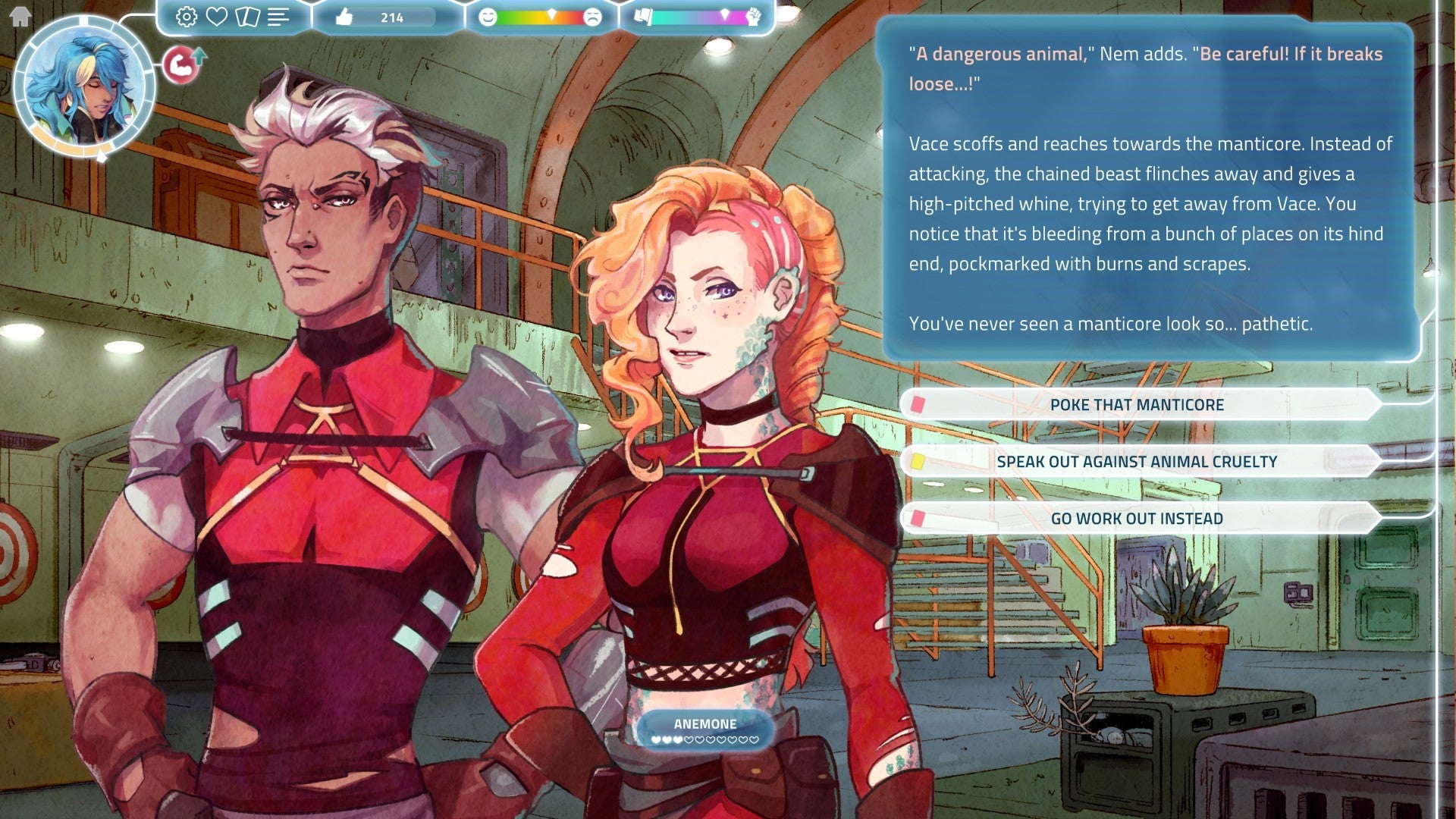Beacon Pines
When Beacon Pines first released, I was juggling a few other games at the time and had planned to save it for some cosy Christmas holiday gaming. But after reading and editing Graham’s review, I decided to start playing it that same day and sure enough, it’s become one of my favourite mystery games of the year. And there have been a lot of mystery games this year. Beacon Pines tells the classic tale of a group of young friends accidentally discovering some conspiratorial shenanigans in their small, quiet town. Pretty standard mystery on paper, but what makes Beacon Pines different is its cosy horror vibe. Yes, you’re playing as a cute animal character, but less than an hour into the story that same cute animal character hides in a garbage unit and discovers that their bin-buddy is a bagged-up, leaking corpse. There are lots of horror surprises in Beacon Pines, but they’re not super dark. It’s more like the fun, cushy kind of danger found in Miss Marple. Imagine if Agatha Christie played Animal Crossing and then wrote a mystery book starring all her villagers - that’s Beacon Pines. I’m also a big fan of the game’s structure, which involves jumping between different timelines, but actually in a very cool way. The twist here is that you’re not only playing as main protagonist Luca but also the reader of the book ‘Beacon Pines’. Reading different chapters of the book lets you jump between different plot paths, so you can try different story choices to figure out the game’s entire mystery. There’s no FOMO of missing out on branching story paths or vital pieces of mystery snippets here. This structure means there’s no reason to replay it, but I actually love that. The feeling of playing a game only once but knowing that you’ve seen and done everything is oh-so delicious. Beacon Pines’ tight 5-hour mystery is like putting all your Christmas leftovers in one giant sandwich - it’s small but dense, full of surprises, and will comfortably satisfy your appetite.
I Was A Teenage Exocolonist
Sci-fi stories always make it seem like moving the entirety of humanity to another planet would be easy breezy. But I Was A Teenage Exocolonist is here to tell us that it most certainly would not be, like, at all. It’s a life-sim RPG about a space colony trying to start a new life on an alien planet on the other side of a wormhole. The story spans a decade of the colony’s time on the planet and the struggles they face as they fight against the planet’s ecosystem. It’s vast, engrossing, queer af, and a fantastic RPG that I will be forever kicking myself over because I didn’t review it when it released. Where Beacon Pines feels like a short, densely packed game, I Was A Teenage Exocolonist feels like a sprawling network of interconnected timelines and world-changing events. There are just so many choices to make: who you make friends with out of the 10 different characters, which of the 25 different colony jobs you pick, which of the 15 skills you specialise in, who you get involved with romantically (if anyone at all) - and it goes on and on. Do you intervene in a monster encounter? Are you quiet or abrasive? A calm thinker or a hot-headed go-getter? It’s kind of mind-boggling. A lot can happen during the game’s ten-year timeline - devastating alien attacks, friends and family members dying, exocolonist anarchy, the whole works. It was only after a couple of playthroughs that Teenage Exocolonist really started to sink in for me. One regrettable choice I made in my first run I got to amend in my 4th playthrough, a full circle moment and a redemption arc 40 years in the making. Its sci-fi narrative is grand, but Teenage Exocolonist shines in its smaller, tender moments too. It’s just as much a story about teens growing up as it is about the survival of humanity, which is one of - if not my absolute - favourite things about it.
Signalis
I’ve never felt so lost playing a game as I did with Signalis. I felt literally lost, wandering its maze of dark, metallic corridors and enclosed passages unsure what I should be doing. I felt figuratively lost, its cosmic story and surreal montages too disorienting to understand. Even after finishing the game and thinking back, I’m not exactly sure what happened, like some of the game’s finer story threads slipped through my fingers. But, my God, did I have a trip playing this game. You play as an android named Elster who wakes up on an empty shuttle abandoned on an isolated, snowy planet. From there she leaves the craft and begins to explore the decrepit underground facilities filled with unknown horrors. Two mysteries begin to reveal themselves: what happened to the occupants of this doomed underground base?; and, who is the woman that Elster is so fiercely determined to find? I’m planning on replaying Signalis. I feel almost compelled to. I need a second playthrough to pour over every line of dialogue, listen to every cryptic radio signal, examine every retro tech object and visual clue. But even through its fever dream qualities, Signalis has enough tangible waypoints for you to assemble its melancholy story. Ahh there’s so much more I wanna talk about - but instead here’s a quick-fire list of what I liked:
Dreams, memories, and reality - ooOOoo which is which?? Sapphic romance, hell yeah. Brutalist architecture that’s so claustrophobic it made me wheeze. Cosmic dreeeeaaaad. Cyborg identity-questioning stuff. PS1-style visuals, but like actually done in a cool way and not just with a VHS overlay. Evil, creepy surveillance state. The heavy, clunky noises you make as you walk around. Fun puzzles, like the one that makes you listen to the whispers in the radio signals.

